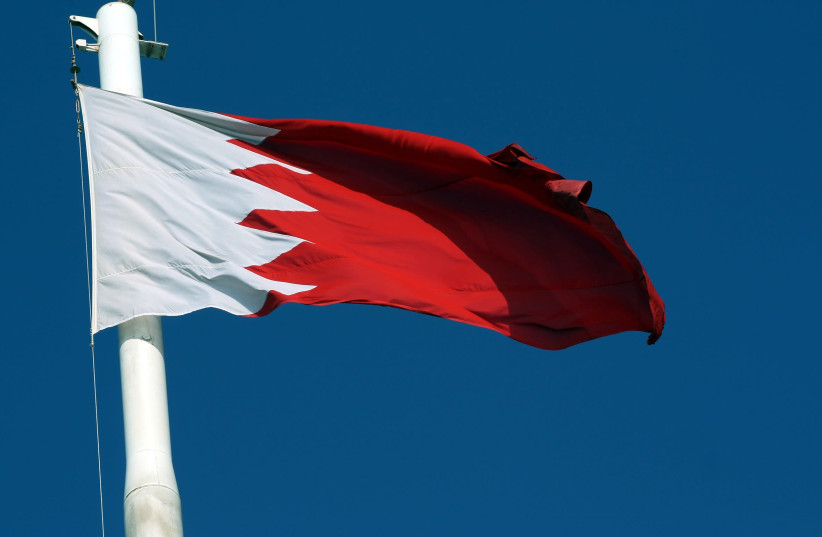I recently visited the Kingdom of Bahrain so that the Wilson Center’s President and CEO Ambassador Mark Green could sign an important agreement with the Supreme Council for Women to conduct policy dialogues related to women’s advancement in Bahrain and across the Middle East and North Africa (MENA) region.
For policymakers in the United States, Bahrain is probably best known for two things. First, Bahrain is home to the US Navy’s Fifth Fleet. Whether it is running counter operations against Iran or ensuring that maritime operations in this dangerous region are safe, the strategic importance of our military forces in Bahrain is critical to protecting the national security interests of the US and our allies.
Second, Bahrain is a signatory to the Abraham Accords which normalized relations with Israel; the first normalization of relationships between Arab nations and Israel since 1994. It was welcoming to discover Bahrain’s history of religious tolerance as I walked by a synagogue in Manama which was built over 100 years ago and learned about a Hindu temple that was built over 200 years ago.
While Bahrain has advanced tremendously in its economic and social sectors, more work still needs to be done on the human rights front. The 2020 State Department Human Rights Report states that Bahrain does not “allow the formation of political parties, but some ‘political societies’ developed political platforms” and describes that the “Ministry of Information Affairs and other government entities exercised considerable control over privately owned domestic print media.”
Notwithstanding the work still left to be done, Bahrain should be commended for being on the Tier 1 list since 2018 on the Department of State’s Trafficking in Person report. Bahrain is the only nation in the Middle East who has achieved this status, which is quite an accomplishment since Bahrain was on the Tier 2 Watch List in 2015.

While the MENA region is often associated with having restrictive women’s rights, Bahrain is setting itself apart. It celebrated its National Day for Bahraini Women on December 1, which symbolizes the journey the country has taken with respect to the role of women in their society. For example, many are not aware that back in the 1920s, Bahrain opened its first government elementary school for girls. More recently, in 2001 Bahrain established the Supreme Council for Women whose mission is to provide opportunities and to empower women. In 2004, the first woman was appointed to a cabinet position; in 2006, the first woman in Bahrain was elected to parliament and the first woman judge was appointed.
On the economic front, Bahrain’s participation rate of women in the labor force was 45% in 2019, more than twice the average of the MENA region. In addition, the MENA region also ranks second-lowest in the world for women running small businesses, yet in Bahrain 49% of new businesses registered were owned by women.
These statistics signify how Bahrain is leveraging women’s empowerment to become a growing financial hub not only in the region but on a global scale. Signing the Abraham Accords will only benefit this endeavor as companies from the start-up nation of Israel can invest, create jobs and foster economic prosperity for the people of Bahrain.
The US can also play an important role by using its economic leverage to help maintain the peace in the region. One incentive to help attract more investment from US companies is utilizing the US–Bahrain Free Trade Agreement which entered into force in 2006. Bahrain is our nation’s 76th largest goods trading partner and US goods and services trade totaled approximately $4 billion in 2019.
US companies are catching on to this great opportunity and recognizing the immense potential that Bahrain has to offer with a highly skilled labor force due to investments in its own domestic human capital. For example, in 2019, Amazon Web Services set up its regional cloud operations in Bahrain and just this year Citibank selected Bahrain to launch its new tech hub to develop digital platforms.
While the Kingdom of Bahrain is the smallest MENA country by population and land mass, it is an understatement to say it punches above its weight. Bahrain’s leadership in advancing religious tolerance and strengthening opportunities for women is bound to have a multiplier effect, which as it addresses the issues raised in the annual State Department human rights report, will further strengthen the country’s reputation as well as have a multiplier effect across not only its country, but the region itself. Trade and the Abraham Accords can improve and strengthen the daily lives of populations in the MENA region, but the people must see an economic benefit, not just a diplomatic one.
Eddy Acevedo is chief of staff and senior adviser to Ambassador Mark Green, president and CEO of the Woodrow Wilson International Center for Scholars. He formerly was the national security adviser at the US Agency for International Development and staff director for the Subcommittee on the Middle East and North Africa for former Rep. Ileana Ros-Lehtinen (R-Florida) on the House Foreign Affairs Committee.
